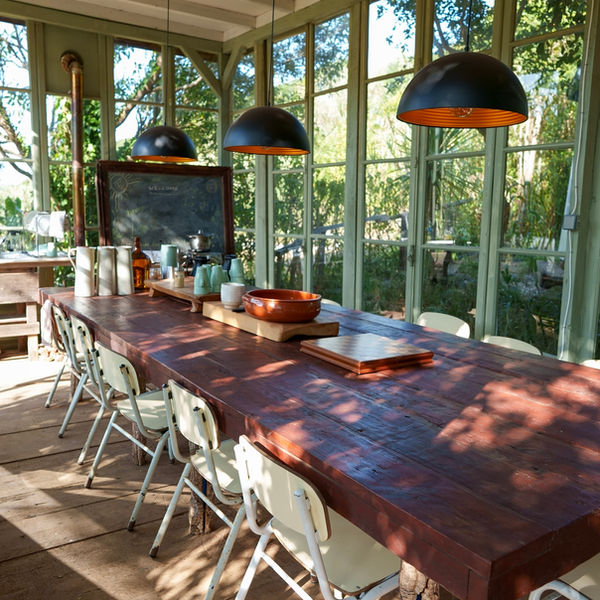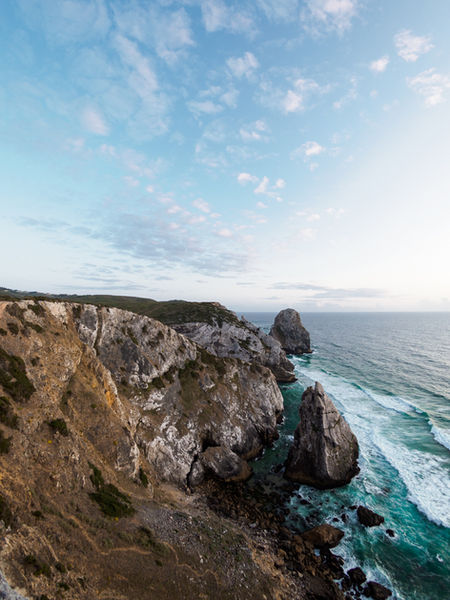
PERMACULTURE DESIGN COURSES PORTUGAL
Explore the world of permaculture and regenerative farming at our educational center in Portugal, nestled in the coastal mountain range of Sintra, just 45 minutes away from Lisbon Airport.

Terra Alta is one of the most established Permaculture projects in Europe. With 18 years as a permaculture site-in-development, and a centre for research and education with over 50 Permaculture Design Certificate Courses (PDCs) taught, we offer Permaculture education at the highest level, led by artist and certified Permaculture teacher, Pedro Valdjiu.

COURSE OVERVIEW
This Permaculture Design Course is an internationally recognised intensive program that equips students with:
-
a comprehensive understanding of the concepts of Permaculture
-
tools and know-how to design your own regenerative projects
-
the basics for land design, and whole-systems thinking tools to better navigate society as well as your own inner landscape
-
Immersive 10-day programme, with one day off on the 5th day (we will served breakfast only - no lunch, no dinner). The programme will span over the full day, alternating interactive theory classes with hands-on session. Social and communal activities during some of the evenings, the day off and departure day.
It is about 50% practical, with plenty of hands-on activities. We create a participatory learning environment and use interactive, embodied learning methods.
PROGRAM INFORMATION
COURSE FEE
Early bird: 840 euros *only applies to sliding scale "fair"*
You can chose what to pay between three sliding scale prices below:
- fair: 890€
- regular: 990€
- supportive: 1090€
This includes food. Upon registering you will be asked for your details and a registration fee of 200 € to secure your spot. This is a deposit and part of the course fee. You just pay the balance when you arrive. Please make sure to read our refund policy in the FAQ section.
COURSE LANGUAGE
All our courses are conducted in English.
ACCOMMODATION
See accommodation section below
FOOD
Three vegetarian (mostly vegan with optional butter and occasional cheese and eggs ) meals per day with ingredients sourced from our gardens. Students are part of the preparation of meals and cleaning as this experience is a component of the course. We expect full honesty on dietary requirements and allergies upon registration - please visit our FAQs page for more information.
Please note that the 5th day of the course (day off) we will serve breakfast only, while the kitchen will stay closed for lunch and dinner. It is not possible to cook in the farm during this day.
We also offer regular camping tents (60€ including a camping mat, not including a sleeping bag) and spots to pitch your own tent for free.
The campsite is a semi-wild area where we have created level terraces among the trees and stones for people to pitch their tents out of view from the rest of the garden.
You can choose your preferred accommodation option upon registration.
WHAT YOU WILL LEARN
-
The seven domains of permaculture action from David Holmgren
-
The principles and ethics of permaculture
-
Permaculture design method for planning a project and designing a homestead - Schematic design
-
Orientation to Terra Alta as home and land resource system
-
Appropriate technology and sustainable energy systems
-
Animals in permaculture systems
-
Introduction to plant care and seed saving
-
Community and social tools for project and personal development
-
Regenerative landscape design
-
Water retention and regeneration
-
Composting and Soil Science
-
Bio-intensive techniques for kitchen and market gardening
-
Introduction to Regenerative Agriculture
-
Vermicomposting flush toilet system
-
Zero Waste strategies
-
Introduction to natural building
-
Food harvesting, preservation, and fermentation
-
Food Forest design, management, and implementation

STUDENT TESTIMONIALS
Frequently asked questions




























